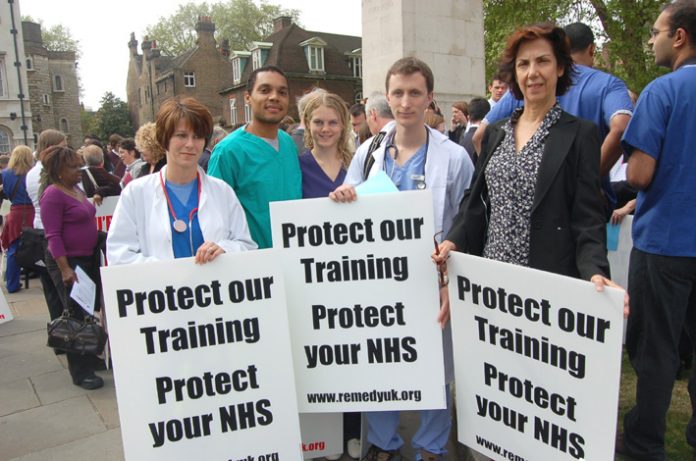
THE BMA yesterday, on the eve of its Annual Representative Meeting in Torquay, sought to impose Gordon Brown’s plan for an ‘independent board to run the NHS’ onto its conference by declaring to the press that this is already BMA policy and has the support of the public.
The BMA issued a statement declaring: ‘There is widespread support among the general public for key aspects of the BMA’s rational way forward for the NHS in England, including the BMA’s call for an independent board to run the NHS.
‘The BMA commissioned an opinion poll to gauge the views of the general public in England on some of the key NHS reforms as part of the Association’s consultation on an alternative approach to health policy.
‘Key findings from the survey include:
‘* Three out of five respondents (60 per cent) agree with the BMA’s proposal that the NHS should be run by an independent board of governors, accountable to Parliament.
‘* Seven out of ten respondents (70 per cent) said that decisions about local health services should by made by bodies elected by the local population.
‘* Over eight out of ten respondents (82 per cent) agree that doctors should have a major role in deciding how money is spent in the NHS locally and what is best for their patients.
‘* Three-quarters of respondents (75 per cent) said that the NHS should provide the same set of nationally agreed services across the country, even if some treatments or medicines are not included.
Eight out of ten patients said that if funding was available, their local area should be able to provide additional services.
‘* Nine out of ten respondents (93 per cent) believe the NHS should continue to be funded from UK taxes and remain free at the point of use, BUT when asked whether a small charge should be made for some services where resources are limited, just over half (53 per cent) agreed that this should be the case.
‘* On the role of the private sector in the provision of NHS services, the majority of the public (two-thirds – 66 per cent) said that private companies should provide care only when there is an identified need or gap.
‘Almost three-quarters of respondents said hospitals funded and run by the same organisation would allow for collaboration and improve services for patients.
‘* Only a third of patients (34 per cent) believed the changes to the NHS in the past ten years had made the NHS better, four in every ten people (42 per cent) believed the NHS had not got better and almost a quarter (24 per cent) neither agreed or disagreed.’
Dr Sam Everington, an East London GP and Acting Chairman of BMA Council, said: ‘The public and doctors are now united in their backing of an independent board to run the NHS and we would urge Gordon Brown to make this a priority for when he becomes Prime Minister.’
In fact the ‘independent’ plan is a Trojan horse for allowing the government to appoint representatives of the private medical industry onto the NHS ‘board of governors’ to decide on how the NHS budget will be spent.
The BMA Annual Representative Meeting must reject this policy as a tool for privatising the NHS.